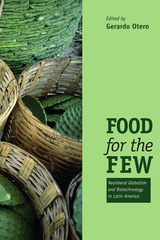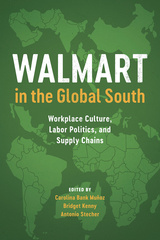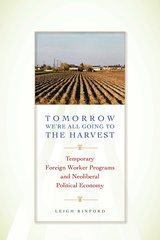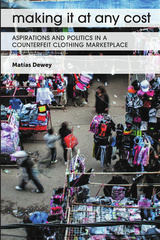Our shopping cart is currently down. To place an order, please contact our distributor, UTP Distribution, directly at utpbooks@utpress.utoronto.ca.

Why are people getting fatter in the United States and beyond? Mainstream explanations argue that people simply eat too much “energy-dense” food while exercising too little. By swapping the chips and sodas for fruits and vegetables and exercising more, the problem would be solved. By contrast, The Neoliberal Diet argues that increased obesity does not result merely from individual food and lifestyle choices. Since the 1980s, the neoliberal turn in policy and practice has promoted trade liberalization and retrenchment of the welfare regime, along with continued agricultural subsidies in rich countries. Neoliberal regulation has enabled agribusiness multinationals to thrive by selling highly processed foods loaded with refined flour and sugars—a diet that originated in the United States—as well as meat. Drawing on extensive empirical data, Gerardo Otero identifies the socioeconomic and political forces that created this diet, which has been exported around the globe, often at the expense of people’s health.
Otero shows how state-level actions, particularly subsidies for big farms and agribusiness, have ensured the dominance of processed foods and made healthful fresh foods inaccessible to many. Comparing agrifood performance across several nations, including the NAFTA region, and correlating food access to class inequality, he convincingly demonstrates the structural character of food production and the effect of inequality on individual food choices. Resolving the global obesity crisis, Otero concludes, lies not in blaming individuals but in creating state-level programs to reduce inequality and make healthier food accessible to all.
A closely argued sociological treatise...Otero draws on realms of data to demonstrate that neoliberal ideology—the belief that human welfare is best achieved through state-supported private enterprise—results in market-based agricultural systems that destroy subsistence farming, traditional diets, and health, while blaming the displaced victims for their own fate.
In the neoliberal era, cuisines and daily eating are always in conversation with state powers that both facilitate and limit access to particular ingredients. Otero offers a historical framework for thinking about how ‘food regimes’ in Latin America have shifted over time...Although the neoliberal diet caused a crisis of obesity, Otero wisely focuses on this as a social problem that requires structural solutions, even though it causes health issues in individual bodies.
A remarkable, comprehensive book that gives the reader the sense of attending an advanced lecture series on global food politics led by a seasoned food expert…The Neoliberal Diet is critical reading for food studies scholars, but it is also useful for anyone interested in understanding transformations in the global political economy over the last several decades and their effects on food production, diets, migration, labor rights, and social movements...[The Neoliberal Diet] takes us very far in understanding the origin and scope of the problems we face and where we need to go.
This volume is a 'must read' for agriculture, food, and nutrition science and policy professionals…[a] path-breaking analysis.
Otero makes several points that warrant the attention of food policy analysts and advocates.
The cogency, clarity, and significance of Gerardo Otero's [The Neoliberal Diet] has become more apparent since the Covid-19 pandemic upended livelihoods across the globe...The Neoliberal Diet interrogates how the combined effects of neoliberal economic policy have engendered vast health inequalities around the world... Otero’s study is an ambitious critique of neoliberalism’s tendency to situate the consumer as almost solely responsible for their health and well-being...Even as the Covid-19 pandemic rages on, Otero reminds us that the neoliberal food regime has, in many ways, laid the groundwork for our present unhealth.
An important and well-documented work. Rejecting the notions that diet is a matter of choice and that with education, the poor would become slimmer and healthier, Otero analyzes structures that limit healthy choices for the poor, particularly in countries linked to developed countries, as Mexico is through NAFTA. He documents how this form of food insecurity is increasing with the implementation of patented genetic engineering. Without the policies that make the technology quite useful for financialization and capital accumulation, combined with laws and tax policies that favor increased concentration in agricultural-input industries and retail distributors, the food system would look very different—as would international migration streams and environmental quality.
- List of Tables and Figures
- Acknowledgments
- Introduction: Obesity and the Neoliberal Diet
- Chapter 1. The Neoliberal Food Regime and Its Crisis: The Dynamic Factors
- Chapter 2. Neoregulation of Agricultural Biotechnology at the National and Suprastate Scales
- Chapter 3. Food and Inequality in the United States
- Chapter 4. Class Diets in the NAFTA Region: Divergence or Convergence?
- Chapter 5. NAFTA, Agriculture, and Work: Mexico’s Loss of Food and Labor Sovereignty
- Chapter 6. Globalizing the Neoliberal Diet: Food Security and Trade
- Chapter 7. Food Security, Obesity, and Inequality: Measuring the Risk of Exposure to the Neoliberal Diet
- Conclusion: What Is to Be Done?
- References
- Index









